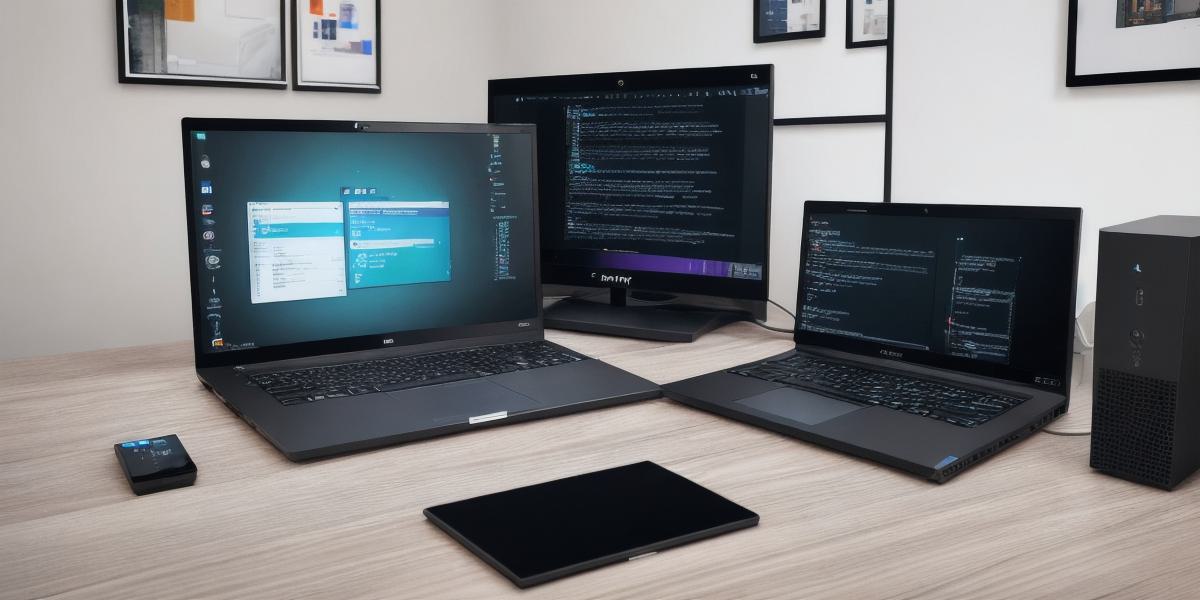Why Every Programmer Needs a Personal Server: A Comprehensive Guide

Introduction
In today’s digital age, having a personal server is no longer a luxury but a necessity for programmers who want to stay ahead of the curve in terms of security and efficiency. In this article, we will explore the importance of having a personal server for programmers, including its benefits, best practices, and how to set one up.
Benefits of Having a Personal Server
Having a personal server offers numerous benefits to programmers, such as:
- Improved security: With a personal server, you have full control over your data and applications, reducing the risk of cyber attacks and data breaches. You can customize firewalls, install antivirus software, and encrypt your data, ensuring that only authorized users can access it.
- Enhanced performance: A personal server allows you to run your applications and websites faster by providing dedicated resources, such as CPU, RAM, and storage. This means that your website will load faster, and your users will have a better experience.
- Scalability: Personal servers are highly scalable, which means that you can easily upgrade or downgrade your resources as needed. This allows you to accommodate growth and changes in demand without breaking the bank on expensive hardware upgrades.
- Customization: A personal server offers complete customization options, allowing you to configure it according to your specific needs and preferences. This includes operating systems, software applications, and security measures.
Best Practices for Setting Up a Personal Server
To ensure that your personal server is running smoothly and securely, it’s important to follow best practices, such as:
- Choose the right hosting provider: When choosing a hosting provider, look for one that offers reliable uptime, top-tier security features, and competitive pricing. Some popular options include DigitalOcean, Linode, and Vultr.
- Back up your data regularly: Regularly backing up your data ensures that you can recover it in case of a server crash or data loss. You can use tools like rsync or duplicati to automate the backup process.
- Update your software regularly: Keeping your software and applications up-to-date is crucial for security and performance. Make sure to install all necessary updates as soon as they become available.
- Use strong passwords: Using strong, complex passwords can help prevent unauthorized access to your server. You can also enable two-factor authentication for added security.
- Monitor your server regularly: Regularly monitoring your server’s performance and logs can help you identify potential issues before they become major problems. Tools like Nagios and Zabbix are great for this purpose.
Real-Life Example of a Personal Server in Action
Let’s take a look at an example of how having a personal server can benefit programmers.
Meet John, a developer who runs his own online business. He has a website that sells digital products and services to other developers. In the past, John used shared hosting, which often resulted in slow loading times and poor performance. This not only frustrated his users but also affected his search engine rankings.
After researching different options, John decided to invest in a personal server from DigitalOcean. He was able to configure it according to his specific needs, install his preferred software applications, and customize security measures to protect his data. As a result, he saw significant improvements in website performance, faster loading times, and higher search engine rankings.
Conclusion
In conclusion, having a personal server is essential for programmers who want to improve their website’s performance, security, and scalability. By following best practices and investing in the right hosting provider, you can set up your own personal server and enjoy all its benefits. As John’s experience shows, taking control of your data and applications can make a huge difference in the success of your online business.








